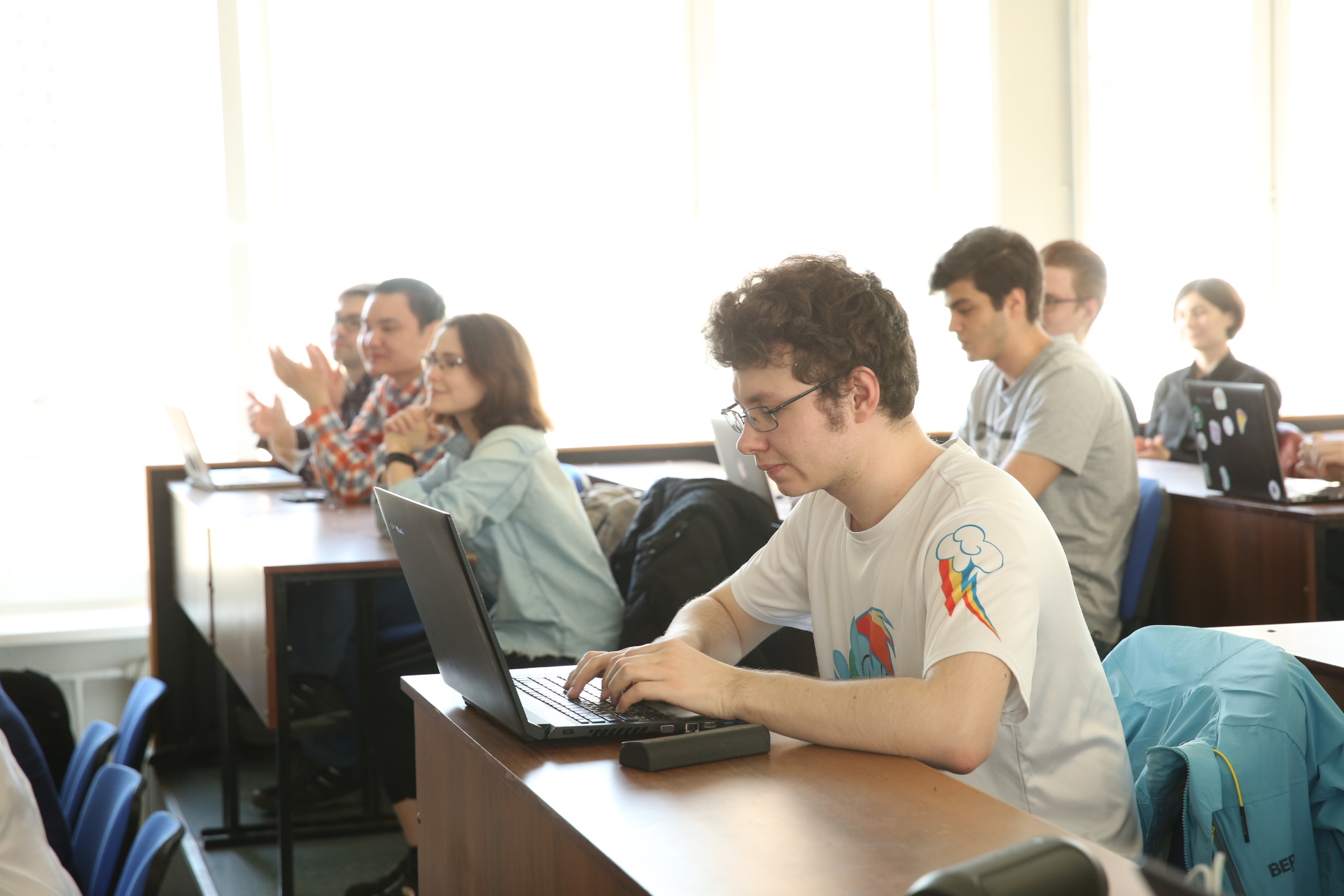Higher School of Digital Economics: Learn IT Competencies and IT Professions at HSE

Over the last two decades, HSE University has consistently worked to strengthen the digital component of its courses. In addition to training IT sector professionals, HSE helps students in other faculties and departments build digital competences. HSE Vice Rector Sergey Roschin explains how the university has earned its reputation as a ‘higher school of digital economics’ and what this means for students and graduates.

HSE Vice Rector Sergey Roschin
When speaking about the digital economy, we refer to much more than just economic processes. We are now living in a world where digital tools and services and various information technologies are integral to any kind of substantive activity. Thus, virtually all university graduates need the skills to use such tools, services and technologies.
For a long time, HSE University has consistently worked to expand the digital and instrumental component of its programme content
From Business Informatics to FCS
In the mid-2000s, two new departments—the Department of Software Engineering and the Department of Applied Mathematics and Informatics—were set up at the HSE Faculty of Business Informatics that existed at that time. This laid the foundation for establishing the Faculty of Computer Science (FCS) a decade later.
In 2012, the Moscow Institute of Electronics and Mathematics (MIEM) merged with HSE and became an essential part of the university, its engineering arm. Today, MIEM runs some of HSE’s degree programmes in IT, in particular those in Information Security and Cyber Security.

In 2014, HSE established its Faculty of Computer Science. The FCS now works closely with Russian IT market leaders such as Yandex, Sberbank, 1C, VK (formerly Mail.ru Group) and other industry partners to train sought-after and highly paid specialists in computer science.
MIEM and the Bachelor’s programme in Business Informatics also benefit from close connections and joint departments with leading IT companies. In addition to offering employment opportunities to graduates, they facilitate undergraduates' project-based activities.
Digital Skills for All
At about the same time that FCS was created, we realised that students learning other subjects also need digital competencies.
Just as learning English became necessary for communicating with the global world at some point, digital literacy today allows us to communicate with the digital world around us
Engaging in a dialogue with a computer storing enormous amounts of information such as big data is a new type of communication that requires specific knowledge and skills.
In the mid-2010s, HSE introduced minors–four additional courses which undergraduates are required to take in their second and third years. The minor in Data Mining, first offered to students of all faculties in 2014, has since become one of the three most popular ones. Today, about 20% of the 100 minors offered by HSE are somehow related to computer science, data analysis and the use of digital technology in various sectors.

In 2017, we launched the Data Culture project to help bachelor's students of all majors build digital competencies in areas such as digital literacy, programming and algorithms, machine learning, and data analysis. The Data Culture project offers the option to just learn basic digital skills or go for in-depth, professional-level training. In 2021/22, HSE introduced a required, independent digital literacy test for students in all educational programmes.
Subject + Instrument
The next important steps for us were two IT-related master's programmes introduced at FCS: Financial Technologies and Data Analysis jointly with Sberbank and Data Analysis in Biology and Medicine.
This year, we are opening enrolment for Legal Tech, a master's programme in the application of information technology for the legal profession. Another new programme is Digital Lawyer, a bachelor's with a focus not so much on technology per se, but on the various developments in the legal sphere in the context of increasingly digitalised public life.
The Faculty of Social Sciences is launching a new Bachelor's in Computational Social Sciences. Students who have chosen bachelor's programmes in Psychology, Public Administration, Political Science and Sociology now have the option to switch to a track with more in-depth instrumental training while keeping their subject major.

The Faculty of Humanities offers a separate track in digital humanities. All of our popular bachelor's programmes in economics and economic analysis, with their extensive coverage of mathematics and data analysis, would simply be impossible without a strong digital component. But in addition to this, we are now launching a new Bachelor's in Economics and Data Science that will combine two popular fields: Economics and Applied Mathematics and Computer Science. HSE University in St Petersburg is launching a Bachelor's in Digital Platforms and Logistics.
In recent years, we at HSE University have seen rapid advancement in natural sciences, where, of course, the IT component is also substantial
The key role played by technology is reflected in the names of some faculties, such as the Faculty of Biology and Biotechnology (rather than the Faculty of Biology) or the Faculty of Geography and Geoinformation Technologies (rather than the Faculty of Geography).
We have launched educational programmes focusing on the use of big data in media communications and journalism.
While we implement such programmes, tracks and modules, we certainly do not expect all of our students to choose them. Social sciences and humanities need a wide variety of specialists, and some may not be inclined to study computer science in depth. Still, we believe that the range of educational programmes offered by HSE University must include those which enable students and graduates to combine their subject-specific knowledge with skills for using digital technology, data analysis tools, and related services.
Research Helps Learning
This trend in study programmes is consistent with the university’s important research focus. HSE participates in the implementation of the federal Artificial Intelligence project, which is part of the national Digital Economy programme.
Both undergraduate and doctoral students are actively engaged in HSE's AI-related research
Training in IT requires high-performance hardware and software, which HSE also has in place. We have invested in a supercomputer to perform multiple IT operations. Formerly, most of its data-processing capacity was used by the natural and engineering sciences, while today, an increasing number of tasks come from social sciences. In the near future, it is likely to become just as important for the humanities.

HSE University is often referred to as the ‘Higher School of Everything’. We started with economics teaching 30 years ago, then evolved to offer training in a wide variety of fields and specialties. There is every reason today to also call it the ‘Higher School of Digital Economics’. In addition to training sought-after IT professionals, we make sure that each of our students learns digital competencies and has an opportunity to not only to acquire in-depth subject knowledge, but also to master cutting-edge computational tools.
Sergey Roshchin
HSE University Vice Rector
See also:
HSE University Named Federal Leader in IT Education by RUSSOFT
On December 5, the award ceremony of the RUSSOFT ranking of top universities took place. The ranking assesses the quality and scale of specialist training in the field of software development among Russian educational institutions. HSE University took fourth place in the 2024 rankings and was named a ‘federal leader.’
How to Teach Business Informatics
20 October, 2014, was a special day for the business informatics community in Russia. The International conference ‘Enterprise value management using subject-oriented BPM’ opened the annual assembly of the business informatics Education and Methodology Union (EMU) hosted by the Higher School of Economics.


